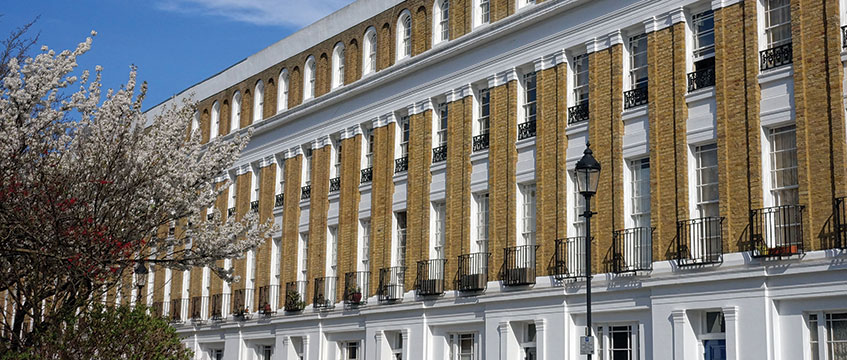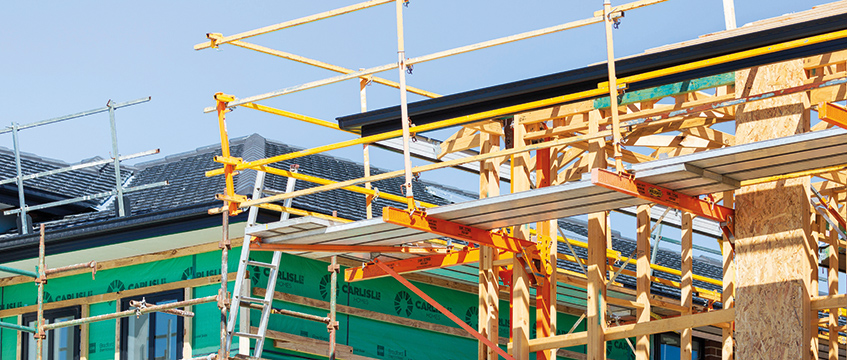The Covid-19 pandemic has underlined the strength of prime residential as an investment class, says Uma Rajah, chief executive of lender CapitalRise.
“Historically it is the most resilient part of the UK property market,” she says. “After each downturn that has been recorded, it bounces back incredibly fast… and the pandemic has just proved its resilience again.”
CapitalRise, set up in 2015 by fintech executive Rajah, corporate financier Alex Michelin and Andrew Dunn, raises money from individual investors and then lends to developers active in parts of prime central London such as Mayfair, Belgravia and Knightsbridge, as well as affluent commuter towns in the Home Counties.
The company received some £5.6bn of loan enquiries last year, up by 60% on 2019’s £3.5bn. “Prime residential is the most attractive area of the real estate market to lend to because of the quality of the real estate, the level of continual demand and the appeal both domestically and internationally for assets in these sorts of locations,” Rajah says.
Sealed bids
Joining Rajah on EG’s latest Market Moves podcast to discuss how the prime market has held up during the pandemic was George Brooksbank, chief executive of investment firm Fairway Capital and managing director at developer Leconfield Property Group. The companies launched a luxury London residential fund in 2019 and brought on board new backers including Investec last year, alongside the high-net-worth individuals the fund targeted at launch.
“London is looking a lot more attractive than many other cities,” Brooksbank says. “They’ve got on top of Covid well in the end and the vaccine roll-out seems to be a success. We’ve now got a stable government, hopefully for a minimum of three to four years, whereas others haven’t… And when you factor in buying costs, holdings costs and disposal costs, we are actually much cheaper and more competitive than other global cities.”
The city-to-rural flight – or “escape to the country” – during lockdowns posed challenges, says Vanessa Hale, head of insights and residential research at BNP Paribas Real Estate’s Strutt & Parker. But it also opened opportunities.
“What that lead to was a re-evaluation of places like prime central London,” she adds. “‘Everybody seems to be going out, should we be looking inwards and seeing if there are opportunities to make a deal?’” But that window “came and went quickly”, she says, and buyer activity has picked up markedly: “You are hearing it from everybody. There’s competition. There are now sealed bids.”
Surviving the worst
Hale describes herself as optimistic and notes that the market has had “a positive experience so far” this year. But she knows the threats to the market may only have lessened, not disappeared entirely.
“We haven’t removed every single element of Covid, and from that economic uncertainty aspect, there are some challenges that we could still face,” she says.
“The furlough schemes ending and the levels of unemployment that we may see coming out of the back end of this year could be a challenge. And generally, the behavioural changes that we will have experienced and what I think we are going to see as far as how people will be working going forward, are all going to impact buyer behaviour.”
Nonetheless, Hale and her team anticipate best-case house price growth across the UK market and in prime central London of 5% for this year. “If you were to have asked me that question a year ago, I would not have been saying that, so overall it is still a positive sentiment,” she adds.
Rajah believes the market has made it through the toughest part of the current crisis.
“We were funding many development sites throughout the pandemic,” she says. “When the pandemic first hit, it was a very stressful time. It was difficult for developers to figure out what they were supposed to be doing – they had to adopt social distancing, they had issues with supply chains. It was a stressful adjustment, but they managed to figure it out. All our sites stayed open and all of those projects have completed. I feel like the industry has learned to adapt within the constraints of the pandemic.”
And for lenders such as CapitalRise? “We have adapted as well,” she says. “We built in significant contingencies into all those loans in the first place, which has enabled us to have those buffers in place. And we will continue to do that. Developers will be a lot more conservative in terms of the time they think it’s going to take to deliver a project, and a bit more conservative in terms of the budget. As a lender, we will continue to put good buffers into our loans to protect everyone.
“But we have lived through the worst of it and now we’ve got a sound foundation.”
Podcast in partnership with 
To send feedback, e-mail tim.burke@eg.co.uk or tweet @_tim_burke or @EGPropertyNews











